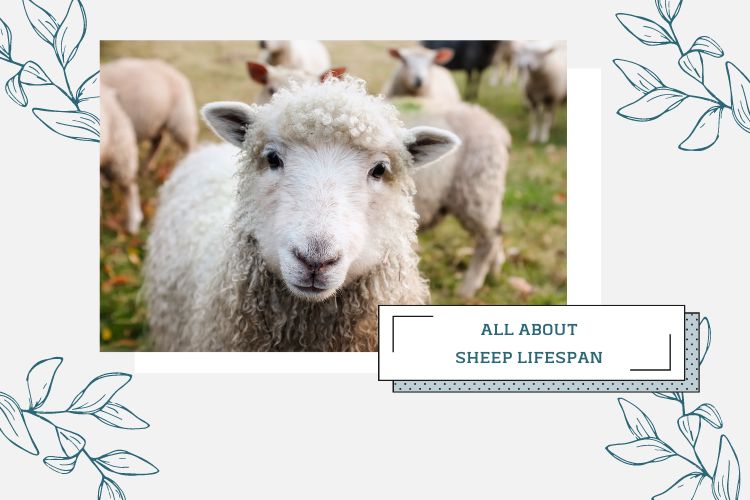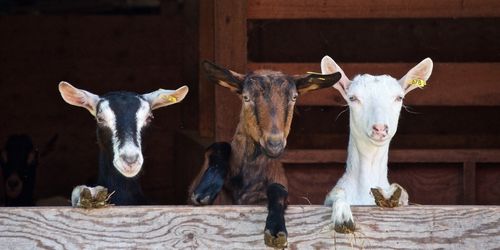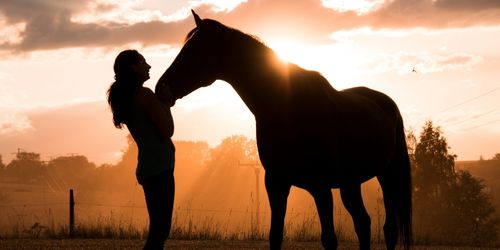Some of the links on our website are affiliate. By making a purchace via our links, you help us create new content and support animal shelters and funds
Sheep Lifespan

From farms to petting zoos, sheep are a cherished addition to a variety of landscapes. To get the most out of these fluffy animals, however, it is important to have a clear idea of how long they are expected to live. The following sections will provide some useful information on this vital topic.
sheep lifespan and breed
While there are many factors that can contribute to a sheep’s longevity, there are some fairly clear ranges that will provide a rough estimate. The lifespan of sheep can often be influenced by the particular breed as well as external factors.
The Merino breed is known to be among the longest-living of any sheep. One Merino sheep lived to be 23 years old, setting a world record at the time.
On the other hand, certain other breeds are characterized by a significantly shorter lifespan.
The Dorper breed can be expected to live only about seven years, while the Montadale typically has a life expectancy of between 10 and 12 years, which is fairly average for sheep in general.
sheep life expectancy and other factors
In addition to the breed, there are a number of other issues and variables that can have a significant impact on the lifespan of sheep.
First of all, nutrition. As with any living creature, it is important for sheep of all types to receive a proper diet. Hay and fresh grass are vital for a sheep to live to its full potential.
Of course, too much food can present serious health problems. And certain types of food, such as alfalfa hay, could cause illness or even premature death.
Secondly, space. Sheep need plenty of room to roam. This is not just for their enjoyment, but it is also a major factor in how long they can be expected to live.
Keeping sheep in close quarters might allow illnesses or diseases to spread more rapidly and could limit the amount of food they are able to eat.
Regardless of any of these factors, studies show that male sheep tend to have a shorter lifespan than females. Additionally, the life expectancy of sheep can increase along with the size of the animal.
health issues shortening sheep life expectancy
Any animal can be negatively impacted by a variety of health problems, but there are some common issues that can arise within sheep that could limit their expected lifespan. A few of the potentially devastating health concerns that can plague sheep of all types include:
Pneumonia
This is a common disease that can spread quickly throughout a group of sheep, particularly those that are kept in a crowded group. Pneumonia can result from a virus, a type of bacterial infection, or a mycoplasma.
Since these organisms can be found in otherwise healthy lambs, there might not be any immediate sign of a serious problem.
When a lamb is in a situation where proper ventilation is obstructed, however, the infecting agent can cause a blockage in the respiratory tract and lead to a major illness that can cut a sheep’s life short.
Chronic Copper Poisoning
Sheep are especially susceptible to copper poisoning, particularly because these animals will continue eating copper-rich foods even after they have had too much of the metal.
If the livestock receives more than 500 parts per million, it can be toxic for the liver and result in death.
That buildup can occur over a span of several months. So it is important to keep a close eye on how much copper is in the foods that any sheep are allowed to consume.
It takes a long time for the liver to process copper and send it through the kidneys, which means that toxicity is a real threat if the food sources are not properly vetted.
Epididymitis
A pair of potentially dangerous bacteria can result in similar symptoms known as epididymitis, which can lead to illness or infertility among infected sheep.
Depending on the region, one of the two bacteria could cause serious issues, including, but not limited to, an infection of the reproductive organs or epididymis.
Johne's Disease
Although this is a disease that can occur in a wide variety of animals, it is especially dangerous when sheep are affected. A bacterium known as paratuberculosis is to blame for the potentially fatal symptoms that result from exposure.
Specifically, infected sheep will waste away and experience diarrhea that ultimately leads to death. Experts have attempted to determine how prevalent the disease is, but there are no concrete numbers yet available.
It is clear, however, that sheep across North America and Europe have gotten sick and died from Johne’s disease, making it a culprit in various environments for decreasing the lifespan of many animals.
how to extend a sheep’s lifespan
Although the points listed above can considerably decrease the life expectancy of sheep, it is also important to understand some basic techniques and practices that will generally expand the lifespan of sheep of all breeds.
Regular checkups
One easy way to determine whether there is a health issue that needs attention is to frequently check the vital signs of sheep. For example:
- the animal’s body temperature should be between 102 and 103 degrees Fahrenheit,
- it should have a heart rate between 60 and 90 beats per minute,
- and its breathing rate should fall between 12 and 20 breaths per minute.
Anything outside of these norms could be a sign that medical treatment is necessary.
Tooth Care
It might go without saying that teeth are important for a sheep to be able to properly chew and digest its food. In reality, however, the role of a sheep’s teeth is even more vital to its longevity.
For example, a check of a ewe’s incisor teeth is a great way to determine an approximate life expectancy. When a sheep is given access to a reliable and healthy food source, its teeth can remain in great condition and help contribute to a long life.
In areas where food is scarce or hard to forage, however, the teeth can become broken or worn. This makes it even more difficult to digest the available food and could lead to health problems due to malnutrition.
It is worth noting that a sheep chews most of its food with molars, so these are more important teeth to care for than the incisors.
We hope that you’ve had a good read and learned a lot about sheep lifespan, what affects it and how to help your sheep live longer!



